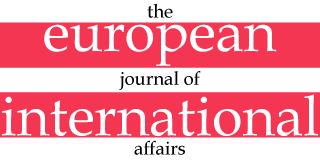The Revenge of Passions
In his criticism of Henry Kissinger’s geopolitical concepts as too narrow and traditional, Stanley Hoffmann wrote: “The map of passions must be added to those showing bases and resources”.
I certainly make no claim here to elaborate these “geopolitics of passion” for which, like Hoffman I think the need is urgentely felt. But I would like to take two preliminary steps. On one hand I would like to make a few comments on the role of passions in what is still called contemporary international relations but which is to be increasingly found at the intersection of things local and global, indeed where these have become entangled. On the other hand I will try to draw some more general lessons on the opportunities for global order.
Too often while problems are global and their solutions imply world governance or at least world solidarity these solutions have been blocked not only by state interests and power structures, or non-state ones, but also by the violent defence of specific local interests or rival and fanatical universal ones seeking conquest. Faced with this the champions of cooperation and tolerance can mostly only deploy rational and moral considerations which lack the fervour and vigour of passions. Frequently the situation reminds one of that described by William Yeats in his often quoted and increasingly relevant lines:
Things fall apart; the centre does not hold
mere anarchy is loose upon the world,
the best lack all conviction and the worst
are full of passionate intensity.
Of course it is not a question of expecting democratic governments and international organisations to imitate the “passionate intensity” of fanatics. But it is a question of reminding oneself not only of Hegel’s teaching that nothing great can be done without passion but also of Spinoza according to whom sad or bad passions can only be overcome by setting against them other, positive passions or using the former against each other.
Log in to Read More





